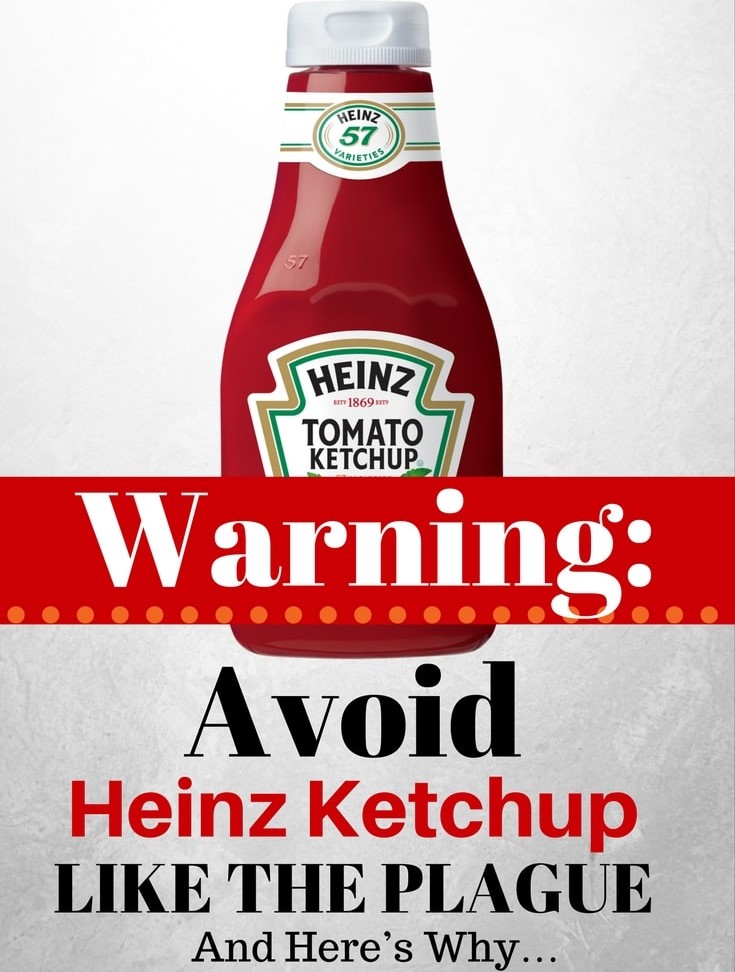

For most families, a barbecue simply isn’t complete without a bottle of ketchup on the picnic table.
However, just because processed ketchup has become an American favourite doesn’t mean it’s healthy.
Today’s ketchup has actually strayed far away from its humble homemade origins.
In fact, the Israeli health ministry has ruled that Heinz ketchup must now be sold in the country as “tomato seasoning” because it doesn’t contain the 41% minimum of tomato concentrate to be labeled as such. Instead, Heinz ketchup only contains 21% tomato concentrate.
If tomatoes aren’t the main ingredient in tomato ketchup, what is?
As you may know, ingredients on a nutritional label are placed according to the volume they take up in the final product.
This means that the first ingredient s the main ingredient in the recipe and the last on the list has the smallest quantity
1. Tomato Concentrate
Tomato concentrate is technically the main ingredient in tomato ketchup, according to the label.
However, seeing as high fructose corn syrup and corn syrup, two processed sugars, are not far behind on the list, it’s safe to say that ketchup actually contains more sugar than it does tomatoes.
And the tomatoes it does contain are likely sourced from GMO farming.
2. Distilled Vinegar
Heinz admits on its website that the white vinegar they produce is made from corn.
Roughly 90% of corn grown in the United States is genetically modified, meaning that it has been engineered to withstand harsh pesticides and pesticides.
The most popular herbicide, Monsanto’s “Round-up”, contains carcinogenic glyphosate which has been detected in the blood and urine of city dwellers around the globe.
Despite this, the company labelled their vinegar “all-natural”, a controversial claim for which they are being sued.
3. High Fructose Corn Syrup
This processed sugar is produced from GMO cornstarch, which undergoes an enzymatic process to chemically convert half its glucose molecules into fructose, which is sweeter.
This syrup is directly linked to obesity and non-alcoholic liver disease.
4. Corn Syrup
Corn syrup is similar to high fructose corn syrup in that it’s made from GMO cornstarch, but its glucose molecules simply aren’t converted.
As with any processed sugar, high consumption of corn syrup can lead to obesity and insulin resistance.
5. Natural Flavor
The FDA qualifies natural flavouring as “the essential oil, oleoresin, essence or extractive, protein hydrolysate, distillate, or any product of roasting, heating or enzymolysis, which contains the flavoring constituents derived from a spice, fruit or fruit juice, vegetable or vegetable juice, edible yeast, herb, bark, bud, root, leaf or similar plant material, meat, seafood, poultry, eggs, dairy products, or fermentation products thereof, whose significant function in food is flavoring rather than nutritional”.
This means that anything naturally occurring, even sugar, can be considered natural flavor.
So you may have noticed that Heinz tends to use a lot of corn in their ketchup, but there’s still more:
Citric acid, often derived from corn, is used to preserve freshness and prevent Clostridium botulinum contamination. This harmful bacteria can cause neurological damage, so processed tomatoes almost always contain extra citric acid.
In the past, naturally grown tomatoes contained enough citric acid to kill the bacteria off on their own, but genetic engineering and nutrient-deficient soil has lowered their acidity.
Spices used in commercial food processing often contain calcium silicate, a corn-derivative, as an anti-caking agent.
Salt, also known as table salt, is iodized, meaning that it likely contains dextrose, a corn-derived sugar. Dextrose is used to stabilize the potassium iodide added to the salt.
Heinz has since launched a certified organic ketchup, but registered dietitian Stefanie Senior warns that even healthy ketchup is so high in sugar and salt that you should limit your serving size to one tablespoon a day.